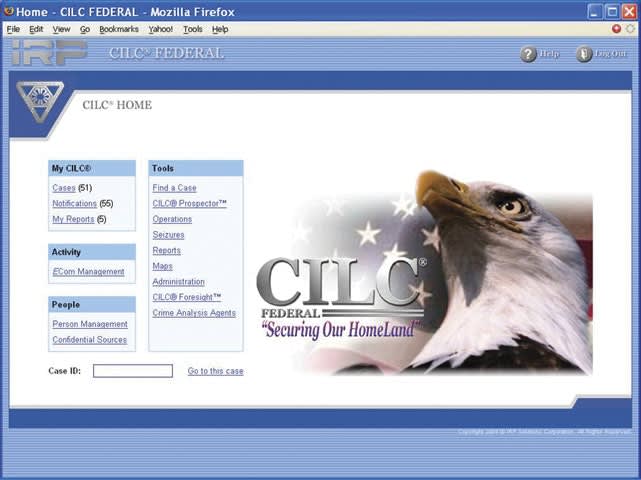In popular myth, the job of a detective is to chase leads, sweat perps, and deliver street justice from the barrel of a smoking gun. In reality, it's to build a case, a solid case that can be turned over to a prosecutor. And that's all about paper; it's about report after report after report.
So it's little wonder that records management and report management software are two of the fastest growing categories of law enforcement software application.
Agencies can buy individual applications to facilitate all aspects of an investigation. They can get an application for initial patrol response, one for detectives, one for case management, one for the C.S.I. teams, and on and on.
Or they can opt for one piece of software that meets all of these needs like IRP Solutions' Case Investigative Life Cycle (CILC). CILC can facilitate the investigation of a crime from initial response to prosecution.
CILC is available in two versions: standalone and enterprise.
IRP is so sure that CILC can improve the efficiency of any agency that the company—through a small agency NIJ initiative—is offering its standalone system for free to small agencies. All the agency has to pay for is the integration of its forms into the system. The company says this costs about $500 per form, and it is hoping to find federal funding to help agencies pay the cost.
"A lot of small agencies do the majority of their work off of one incident report form," says David Banks, IRP's chief operating officer. "Our goal is not to charge the small agency a lot of money. Our goal is to provide a service that will allow small agencies to communicate nationally and with different levels of government." CILC features XML information mapping that gives agencies the capability to share information with national databases such as NCIC.
The CILC enterprise system is designed for larger agencies and is customized for each client. "We adapt to your needs. You don't adapt to us," says Banks.
Of course, all this adaptability means that the client must be patient. It's likely to take up to six months to implement a CILC enterprise system. "It all depends on how complex the agency needs are. So it can take some time to meet those requirements. But when the system is up and running, you will know that the CILC software will do exactly what you want it to do because it's based on your needs."
And CILC can do a lot; the software's capabilities have been expanded way beyond its initial concept as merely a case management tool. It can now perform records management duties as well.
"It's all about changing the way that law enforcement agencies collect and manage information," says Banks. "If we can get each law enforcement agency to collect information more efficiently, then officers will be able to distribute, analyze, present, and manage that information more easily."
IRP is so sure that CILC will be a boon to large agencies that it is taking a radical step to overcome any resistance to the system based solely on price. "We are so confident in our solution and we want to get it into the marketplace. So we are willing to make the following offer: The first agency that comes on board can name its price and that's where we will start negotiating," Banks says.
For more information, visit the company's website here.













